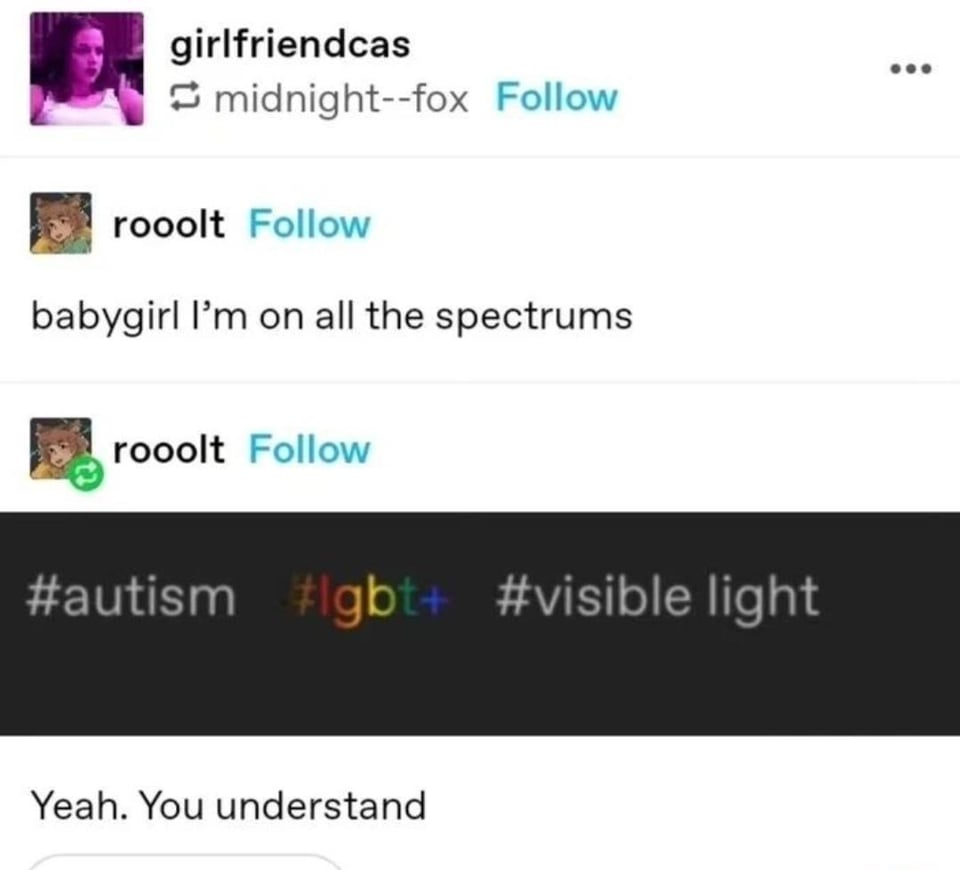nothing here but sriracha doomers
issue 230, 20th August, 2023
CJW: Welcome back, or if it's your first time reading then thanks for joining us as we cover another two weeks of... all this.
If you're able to support us, you’ve got a couple of options:
Both give you access to the full bonus archive, as well as new bonuses as they are posted. Another thing you can do to help spread the word is forward this email to someone you think might enjoy it.
I wrote our latest bonus: Dashcam Confessional, on Australian Dash Cam Compilation videos as guilty pleasure.
The Team
Daniel Harvey (DCH) - Designer, writer, provocateur. Pro-guillotine tech critic. @dancharvey
Marlee Jane Ward (MJW) - is also Mia Walsch. Writer, apocalypse witch, goth aunt.
Corey J. White (CJW) - Author, sin-eater, future sweetie-pie.
Lidia Zuin (LZ) - Journalist, MA in semiotics, and PhD in Arts. Sci-fi writer, futurology researcher and essayist. @lidiazuin
Climate Change & The Environment
MJW: The Sriracha Shortage Is a Very Bad Sign - Katherine J. Wu at The Atlantic
The sriracha shortage is hardly the worst crop crisis that’s being fueled by climate change. For years, Michigan cherries have been suffocating in too-high temperatures, while Florida citrus have been obliterated by hurricanes; India’s wheat crops have roasted, while rice around the world has been double-teamed by floods and heat waves. But to now see peppers in peril is its own special burn. Bred in some of the world’s warmest regions, chilis have long been a poster child of heat tolerance. They, more than so many other plants, were supposed to be okay. Now, though, as temperatures get more scorching and droughts continue to parch the planet, “I think we are going to see this more often,” Guillermo Murray-Tortarolo, a climate scientist at the National Autonomous University of Mexico, told me. Sriracha’s troubles may turn out to be a bellwether for even more flavorless times to come.
While I love that the phrase ‘double-teamed’ is in an Atlantic article, this article was pretty depressing. Next up, coffee.
//
CJW: Does The Ocean Floor Hold The Key To The Green Energy Transition? - Charlotte Elton at Noema Mag
In the deep-sea mining debate, the real question is not whether companies should plunder on land versus sea. The question is about how humans look at the natural world: as a naked resource, nothing more than an agglomeration of resources that exist to be ruthlessly exploited? As our home, a place we must protect at all costs or face the consequences?
Great piece on the push for deep-sea mining. Hard to side with the would-be miners when they're driven by profit motive, and when we understand so little of what lives in the deeps and how that environment impacts what happens above. Not understanding how much damage could be done does not mean that the damage won't matter…
//
CJW: We can’t afford to be climate doomers - Rebecca Solnit at The Guardian (via Sentiers)
I don’t know why so many people seem to think it’s their job to spread discouragement, but it seems to be a muddle about the relationship between facts and feelings. I keep saying I respect despair as an emotion, but not as an analysis. You can feel absolutely devastated about the situation and not assume this predicts outcome; you can have your feelings and can still chase down facts from reliable sources, and the facts tell us that the general public is not the problem; the fossil fuel industry and other vested interests are; that we have the solutions, that we know what to do, and that the obstacles are political; that when we fight we sometimes win; and that we are deciding the future now.
This opinion piece is kind of about me, and I don't like that, but I find it hard to avoid the doom. I know a big part of that is depression and the ways it affects my thinking, but knowing that doesn't mean I can stop it. And it also doesn't change the facts on the ground - like the fact that governments all over the world are opening up new gas fields on land and offshore even as they take part in various climate meetings and claim to be acting for the future. But Solnit is right that we have to fight.
//
“I always feel a resigned hopelessness around the edges of these articles, as if the whole thing is preordained and we’re just litigating how much suffering the process will inflict. But none of this is inevitable and the more closely you look at the details, the more negotiable they seem. There are other mining methods that aren’t so thirsty, other places lithium can be mined, and other lithium sources that don’t involve mining at all. Right now, the lithium-ion battery is the only energy storage system that makes sense for an EV — but there’s no guarantee that will still be true in 2030.” Lithium is only as dirty as we make it
"Thus, the correct mental model is not one of impacts slowly getting worse over decades. Rather, the correct way to understand climate change is that things are fine until they’re not, at which point they’re really terrible. And the system can go from “fine” to “terrible” in the blink of an eye." Why are climate impacts escalating so quickly? - Andrew Dessler
"Based on current emissions and policies, the world is likely to experience 2.7 degrees Celsius of warming by 2100." - 10 Facts That Prove the World Is in a Climate Emergency - Sabrina Weiss, Matt Reynolds, Maria Paula Escobar-Tello at Wired
Just the headlines:
Geopolitics & Empire
CJW: How Europe Outsourced Border Enforcement to Africa - Andrei Popoviciu at In These Times
Over the past year, I have trekked through Senegal’s border towns, spoken with dozens of people and sifted through hundreds of public and leaked documents to piece together the impact of EU migration investments in this key country. What has emerged is a complex web of initiatives that do little to address the reasons people migrate — but a lot to erode fundamental rights, national sovereignty and local economies in African countries that have become EU policy labs.
A detailed long-read on the shitty state of EU anti-immigration efforts. Neocolonialism in action.
//
CJW: The West’s Double Standards in the Armenian Crisis - Aidan Simardone at Jacobin
Just as Israeli attacks against Palestine elicit little response from the West, so too is the West apathetic when Azerbaijan attacks Armenia. Azerbaijan is a key partner for Europe’s energy security and for the West and Israel’s military alliance against Iran. In contrast, Armenia has no fossil fuel reserves and is one of only ten countries hosting a Russian military base. For the West, it would be better if Armenia was gone.
A great summary of the situation in Armenia and of the history that brought things to this point.
//
CJW: Benjamin Netanyahu’s Judicial Reform Is About Supercharging the Occupation of Palestine - Juan Cole at Jacobin
Once upon a time, such [anti-protest] tactics were honed to a kind of grim perfection to repress Palestinians on the West Bank. Now, the Israeli opposition is discovering that such brutalization of indigenous West Bank villagers has boomeranged, and that the government has begun to deal with them as it once did with stateless Palestinian demonstrators. Consider this the new Israeli reality: the fifty-six-year-long brutal occupation of the Palestinian Territories has come home to roost, and Israel is now occupying itself.
As pointed out in this piece, the Israeli supreme court is barely/rarely an arbiter of justice for Palestinians, but even that much accountability is better than letting Netanyahu and his far-right government off the leash entirely.
//
Sudan's next stop: Regional proxy war? - Alex de Waal at Responsible Statecraft (via Foreign Exchanges) - A good summary of the current situation in Sudan and the broader geopolitical tensions related to it.
How to Ignore 4.5 Million Deaths - FAIR - (via APH) Bryce Greene reviewing Norman Solomon's War Made Invisible, detailing the media's enabling of the US GWoT and the deaths and displacement of millions that the US has caused.
Baghdadi Raid Documents Suggest New US Standards for Assessing Civilian Harm - Anna Zahn at Just Security - CJW: And of course the changes will make it easier for the US to avoid accepting responsibility for civilian deaths.
Just the headlines:
Tech & Design
MJW: Sex Workers Took Refuge in Crypto. Now It’s Failing Them by Joel Khalili at Wired
Banks and payment processors shy away from the adult industry... Data published in May by the Free Speech Coalition (FSC), a US trade association for the adult industry, suggests two-thirds of sex workers have lost access to either a bank account or financial service, while 40 percent have had an account closed within the past year. Faced with this predicament, sex workers have gone in search of an alternative means of both storing wealth and accepting payment. In cryptocurrency, for a time, it appeared they had found one: Not only did crypto allow clients to pay discreetly, without supplying personal information, but it gave sex workers a way to bypass the banking system entirely, by taking payments directly to their crypto wallets.
But as regulatory scrutiny of cryptocurrency ratchets up in response to the fallout of the collapse of crypto exchange FTX, sex workers are bumping up against its limitations. They are finding that, in a few important ways, crypto is no more detached from the banking system than the dollar it was built to some day replace.
When I was complaining recently about financial discrim for SW on insta, a pal who works in tech DMed me. Surely there’s a way, he said, and gave a few suggestions. Look dude, I replied, you do not understand. Then I countered every suggestion he gave with all the ways they simply would not work. Not even greedy banks want sex workers' money, despite many kinds of sex work being completely legal in many regions. You’d think they would, right? Wrong. Payment processors rule sex work, and with a press of a button they can devastate a worker's living.
//
CJW: Don't look into the Orb - Paris Marx
In short, the company didn’t care about the impacts on the people testing and operating its products because, just like the Kenyan workers paid $2 an hour to train ChatGPT and who now report mental health impacts from the graphic content they were made to read. They were only necessary to train systems that the founders hope will really be used by more affluent tech libertarians and people in the Global North. That’s exactly why the company hasn’t addressed the serious privacy concerns with its product, and has already fueled the emergence of a black market in biometric data and Worldcoin accounts.
I've been aware of Worldcoin and The Orb for a while now thanks to Trashfuture, but I'm not sure if we've mentioned it here before. This is a tight run down of the company, its lies, half-truths and bullshit plans for the future. A future that would obviously be (even more) dystopian - I mean, just look at the orb they want you to look into and tell me it isn't somehow malevolent…
DCH: see also: Scammers are cashing in on Worldcoin’s chaotic Kenya launch + Deception, exploited workers, and cash handouts: How Worldcoin recruited its first half a million test users
//
cultural-fracking-as-a-service (or: an abjuration of “artificial intelligence”) - Paul Graham Raven on his laudable decision not to use AI in the consultancy practise he is in the process of establishing. I (CJW) have basically come to the same decision. I find the outputs of these systems to be so dull that I the process of engaging with them just isn’t fun, interesting, or inspiring, so I can't imagine a way of using them in my writing practise that wouldn't make the process less enjoyable (and the final product more generic, most likely). And even if the systems and outputs were improved in ways that appealed to me, there is still the ethical question (massive plagiarism by the already wealthy, stealing work from those that are generally woefully underpaid) that I can't ignore.
“If hallucinations aren’t fixable, generative AI probably isn’t going to make a trillion dollars a year. And if it probably isn’t going to make a trillion dollars a year, it probably isn’t going to have the impact people seem to be expecting. And if it isn’t going to have that impact, maybe we should not be building our world around the premise that it is.” What if Generative AI turned out to be a Dud? - Gary Marcus
““Him” didn’t live up to his promise. Four months after these virtual lovers were brought to life, they were put to death. In early July, Timedomain announced that “Him” would cease to operate by the end of the month, citing stagnant user growth. Devastated users rushed to record as many calls as they could, cloned the voices, and even reached out to investors, hoping someone would fund the app’s future operations.” These women fell in love with an AI-voiced chatbot. Then it died - Viola Zhou • restofworld.org
Society & The Culture
MJW: Canada’s Far-Right is Planning a Convoy to Toronto to ‘Save the Children’. It’s Already Spinning Out of Control by Luke LeBrun at Press Progress
Berry says the convoy wants to save children from the “human trafficking industry,” but also from “mandating the shots to kids and kids getting sick and frigging education and all the stuff they’re teaching them in schools and the trans agenda and the math agenda, gender dysphoria – all of these things. You got to save them from the whole system.”
I mean… it’s just… I dunno. The left is busy infighting, and the right is banding together under the loosest, most ignorant of banners and it’s just bonkers.
//
CJW: Dangerous visions: How the quest for utopia could lead to catastrophe - Émile P. Torres interviewing Monika Bielskyte at Salon (via Sentiers)
So the way I see it, the techno-utopian visions of a colonized cosmos and transcended Earth are really just about finding ideological ways to justify compounded human and biosphere genocide happening today — a way to say that in light of those grand visions, extinction of species or languages is ultimately "not that important." That is absolutely false. It's not that we shouldn't aim to learn more about the cosmos, but that we need to refocus more energy to understanding and regenerating the damage we have wrought upon ourselves and this planet — improving soil health and the health of our oceans, rewilding, etc., are more future-worthy endeavors right now. Instead of fantasizing about machine or alien consciousness, we should prioritize understanding non-human animal consciousness, because we are rendering species extinct before we are even able to learn about their perception and sensory experience of the world we share.
A great interview with Monika Bielskyte on utopia vs dystopia, who is included in each (and what certain exclusions really say about a "utopia") as well as other visions for the future and how to create those and protect them from the visions of the tech elite.
//
CJW: Animals in the Room - Melanie Challenger at Emergence Magazine
In their presumed silence, other animals, we imagine, can’t protest in any political sense. And therefore, they can’t dissent in ways we might recognize. But in the winter of 2020, a team from the Humane Society International captured footage of animals farmed for their fur in China. Using covert cameras, they secured evidence of wild animals housed in rough brick and wire cages, caked in filth and fur. One investigator from an associated organization said that a fully skinned animal on the pile was conscious and able to raise its head for ten minutes before dying. The footage makes it clear to anyone that animals use their bodies and their voices to protest their conditions: they protest the miserable lives they are experiencing and their deaths. Just imagine for a moment if we listened to them.
On animal communication and animals being worthy of our consideration even if they don't "speak" as we do. The second half of the piece goes onto the collective Animals in the Room:
Animals in the Room is now an international collaboration of philosophers, scientists, and animal welfare specialists working together to devise and test the best ways of representing nonhuman animals in decision-making. Crucially, this representation is founded on working with the animals to communicate their interests on their own terms. In other words, we act from the belief that animals aren’t remotely “dumb.”
//
Targeting Trans Kids, Florida School Board Requires Parental Approval for Nicknames Natasha Lennard at The Intercept - "Thankfully, hundreds of thousands of students have protested and continue to protest school board meetings, staging walkouts against anti-trans laws and policies, including in Orange County. They will not be readily controlled — they will use each other’s names."
Health, Cooking, and Related
Inside the Effects of Oregon’s Measure 110, Which Decriminalized Hard Drugs - Jack Holmes at Esquire with a great long-read: "Every state in America has a fentanyl problem, but only Oregon has decriminalized drugs and sent hundreds of millions in legal-weed tax dollars to organizations that are trying to heal people. In Portland and a rural county nearby, there is both chaos and hope."
Labour & Economics
“We replaced the "evil taxi cartel" with an "evil taxi monopolist." And it's still losing money.” No, Uber’s (still) not profitable - Cory Doctorow
The planet’s economist: has Kate Raworth found a model for sustainable living? - Hettie O'Brien at The Guardian following Kate Raworth, the author of Donut Economics, which we've talked about here once or twice before. Worth a look if you’ve missed DE before now.
Just the headlines:
Books
LZ: The Hidden Life of Trees, by Peter Wohlleben
Since I read the fanzine Becoming the Forest, I became increasingly more interested in understanding how forests work. Well, I guess this book itself was a recommendation in that fanzine, and I was lucky enough to find a copy in the city's library. It's a marvellous read. The writer is a forester who changed his mind from seeing forests as simply resources for profit to actually trying to understand how trees work. The way he explains how each and every being in the forest has a role in the ecosystem (which, by the way, he stresses that is no harmony as we are usually sold it to be), also some jokes make this book a great experience. I wish I had a biology teacher like that back at school!
//
MJW: Happy Endings by Bella Green
Sex worker and comedian Bella Green passed away last month. She was a hot, funny bitch. We found out she had died the day after Sinead O’Connor died, and both women were open about their bipolar disorder (though previously diagnosed, Sinead - aka Shuhada Sadaqat - rejected the label later in life.) Not only did I mourn the passing of a pal (Bella asked me to first read her memoir and we bonded a bit over that), but the loss of another of my bipolar role models gave me a little stab in the guts. They just keep dying. Bella’s memoir is hilarious, vulnerable, and honest. Like all sex work memoirs, it offers a fascinating insight into the particularities of the sex work industry in varied regions (“In Sydney, ball-licking was considered disgusting; in Melbourne everyone licked balls.”) Finally, her book talks frankly about her mental illness, suicide attempts, and the pain she lived with. When I can read it again, or listen to the audiobook that she narrates herself, I know it will be heartbreaking, but I’ll still cackle to myself anyway.
Podcasts
CJW: Interzone Podcast (RSS Link)
I was interviewed on the Interzone Podcast in the lead-up to my story, Hollywood Animals, appearing in issue #295. Listen, subscribe, and you can also read Marlee's story, Building, on IZ Digital.
Video
DCH: The unbearable lightness of solarpunk: utopian visions and invisible infrastructures
Lots of moving parts in this great talk from Paul: tech, policy, community development and the dangers of being complicit in mythmaking.
Music
LZ: Sanguinária - Árias Sanguíneas
That's a very curious example of black metal band. It's a Finnish band with a Portuguese name and lyrics also in Portuguese. It's not a Brazilian singer though, but a Portuguese guy. Very old school, vampiric vibes to this band paying homage to the one and only Countess Bathory. Needless to say that if you like Bathory (which I just learned it is a Swedish band) you will like Sanguinária too, but it also has a bit of melodic tones which may remind you of Dark Funeral, maybe.
This is absolutely amazing. A depressive black metal from Sri Lanka with lyrics based on Hinduism beliefs, such as that suffering is an inescapable part of life. How adaptable is the genre and how great they sound!
The Memes







You just read issue #230 of Nothing Here. You can also browse the full archives of this newsletter.